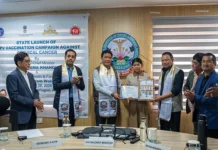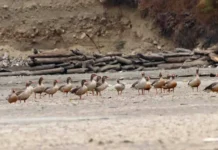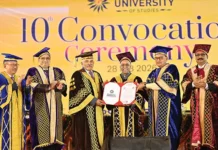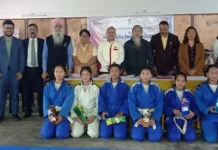PASIGHAT, Aug 13: Over 100 participants from all over India attended a webinar on ‘Medicinal animals and nutraceutical resources’ organized by the North Eastern Institute of Folk Medicine here in East Siang district on 12 August.
The webinar’s organizing secretary, Dr Kenjum Bagra in his inaugural address said that “the connection between eating animals and animal products for healing is common in traditional folk medical systems all over the world.”
He also said that “zootherapy is important in various socio-cultural environments, and innumerous uses of animal-derived remedies can be found in many urban, semi-urban and more remote localities in all parts of the world.”
“In India, nearly 15-20 percent of Ayurvedic medicines are based on animal-derived substances,” Dr Bagra said.
Prof DN Das from Rajiv Gandhi University (RGU) spoke on “medicinal animals and their potential for mankind,” and said that, “despite there being huge relevance, research on animals as medicine has been neglected.”
Prof J Chakravorty from RGU highlighted various nutrients present in insects. She added that “arthropods contribute most as nutraceutical resources.”
Dr Deepjyoti Baruah from the ICAR’s directorate of coldwater fisheries research, Bhimtal, spoke on coldwater fish diversity which plays an important role as food and medicine.
“Fish proteins help in reduction of blood cholesterol, wound healing, act as antioxidants, strong cytotoxic activity against cancer cells, and migraine pain. Women having fish oil meal in first trimester have 3.6 times less risk of low birth weight and premature birth,” Dr Baruah said, adding that indigenous small fish found in the hill streams contain more micronutrients and vitamins.
Drs Amal Bawri and Imlikumba also spoke.




